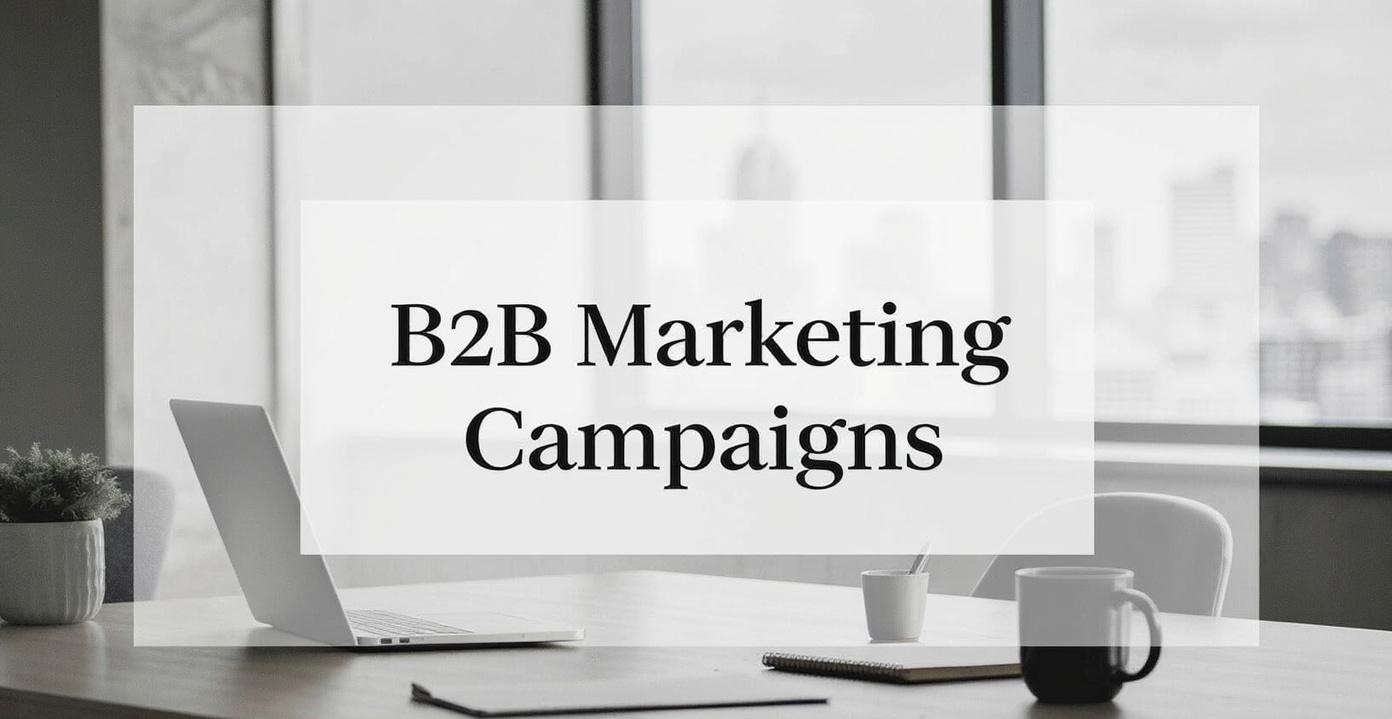In the competitive world of B2B marketing, achieving measurable results requires a strategic approach. B2B Marketing Campaigns are the backbone of lead generation, brand building, and business growth. Companies that invest in careful planning, data-driven strategies, and personalized outreach see higher engagement, improved conversion rates, and sustainable revenue growth. Understanding how to design and execute campaigns effectively is critical for success in 2025.
Knowing Your Audience
The foundation of any successful B2B campaign is a deep understanding of the target audience. B2B buyers typically involve multiple decision-makers and longer evaluation periods. Creating detailed buyer personas that include demographics, roles, goals, and challenges enables marketers to craft content that resonates. Personalized messaging ensures that each prospect receives relevant information addressing their specific pain points. When audiences feel understood, engagement improves, and campaigns are more effective in moving leads through the sales funnel.
Data-Driven Decision Making
Data is essential for optimizing B2B campaigns. Analytics platforms, CRM tools, and marketing automation systems allow marketers to track engagement, lead quality, and campaign performance. By analyzing behavioral patterns, such as website visits, content downloads, and email interactions, marketers can segment audiences and deliver targeted campaigns. Predictive analytics and AI-powered tools help anticipate buyer behavior and provide actionable insights to improve campaign effectiveness. Data-driven campaigns increase ROI and ensure marketing efforts are focused on the most promising opportunities.
The Power of Content Marketing
High-quality content drives engagement and builds authority in B2B campaigns. Informative resources such as whitepapers, case studies, webinars, and industry reports educate prospects while positioning the brand as a thought leader. Video content, interactive demos, and live sessions can further capture attention and engage audiences. Delivering content that is timely, relevant, and valuable strengthens relationships with prospects, encourages continued interaction, and nurtures leads through the sales process.
Multichannel Campaign Execution
A successful B2B marketing campaign leverages multiple channels to reach prospects across touchpoints. Email marketing, social media, search engine marketing, and account-based marketing strategies work together to deliver consistent messaging. Account-based marketing targets high-value accounts with tailored messaging, improving conversion chances. Integrating channels ensures prospects encounter your brand multiple times, increasing familiarity and trust, and driving better results from campaigns.
Marketing Technology and Automation
Marketing technology plays a vital role in running high-performing campaigns. Automation platforms streamline repetitive tasks, nurture leads through automated workflows, and track engagement metrics. AI tools analyze data, recommend optimizations, and generate content ideas. Chatbots and conversational AI provide real-time interaction with prospects, helping guide them along the buyer journey while capturing valuable lead information. Using technology enables campaigns to scale efficiently and ensures performance is measurable and optimized for ROI.
Personalization and Segmentation
Modern B2B buyers expect personalized experiences. Segmentation based on role, industry, company size, and behavior allows marketers to deliver relevant messaging to each audience segment. Personalized emails, tailored content recommendations, and targeted offers improve engagement and drive conversions. AI-driven segmentation helps marketers anticipate prospect needs and deliver content at the right time, creating meaningful interactions that strengthen relationships and accelerate the sales process.
Measuring and Optimizing Campaign Performance
Tracking performance is critical for refining campaigns. KPIs such as lead quality, conversion rates, pipeline contribution, and revenue attribution provide insights into campaign success. Regular analysis of these metrics allows marketers to make informed adjustments, optimize messaging, and allocate resources efficiently. Continuous measurement ensures campaigns remain aligned with business objectives, delivering maximum impact and ROI.
Aligning Marketing with Sales
Effective B2B campaigns require strong collaboration between marketing and sales teams. Alignment ensures that qualified leads are passed efficiently, prospects receive consistent messaging, and conversion rates improve. Integrated technology platforms and shared goals foster collaboration and communication. Marketing and sales working together can engage prospects effectively at each stage of the buyer journey, resulting in stronger pipeline growth and higher campaign success.
Storytelling and Brand Differentiation
Storytelling enhances campaign impact by humanizing the brand and making it more relatable. Sharing customer success stories, case studies, and testimonials demonstrates the real-world impact of your products or services. Compelling narratives help prospects connect with your brand on an emotional level, improve engagement, and strengthen brand recall. Effective storytelling differentiates a company from competitors and positions it as a trusted partner in the industry.
Social Media and Thought Leadership
Social media platforms such as LinkedIn, Twitter, and niche forums provide channels for thought leadership and engagement. Sharing valuable content, participating in discussions, and connecting with industry leaders boosts brand visibility. Social listening tools allow marketers to track conversations, competitor activity, and trends, providing insights for campaign strategy. Active engagement on social media strengthens credibility, builds trust, and supports lead generation efforts.
Partnerships and Influencer Collaboration
Collaborating with industry influencers and strategic partners can amplify B2B campaigns. Joint webinars, co-branded content, and expert endorsements increase credibility and reach new audiences. Influencer marketing provides third-party validation and access to highly targeted prospects. Strategic collaborations allow businesses to expand their influence, build trust, and drive meaningful engagement while maintaining authenticity in messaging.
Continuous Testing and Innovation
B2B marketing campaigns must evolve to stay competitive. Testing new strategies, A/B testing creative elements, and leveraging emerging technologies provide opportunities for continuous improvement. AI tools, predictive analytics, and advanced automation enable marketers to optimize campaigns and deliver more personalized experiences. By adopting a culture of experimentation, businesses can adapt to market changes, anticipate customer needs, and execute campaigns that consistently achieve results.
About Us : Acceligize is a global B2B demand generation and technology marketing company helping brands connect with qualified audiences through data-driven strategies. Founded in 2016, it delivers end-to-end lead generation, content syndication, and account-based marketing solutions powered by technology, creativity, and compliance.


